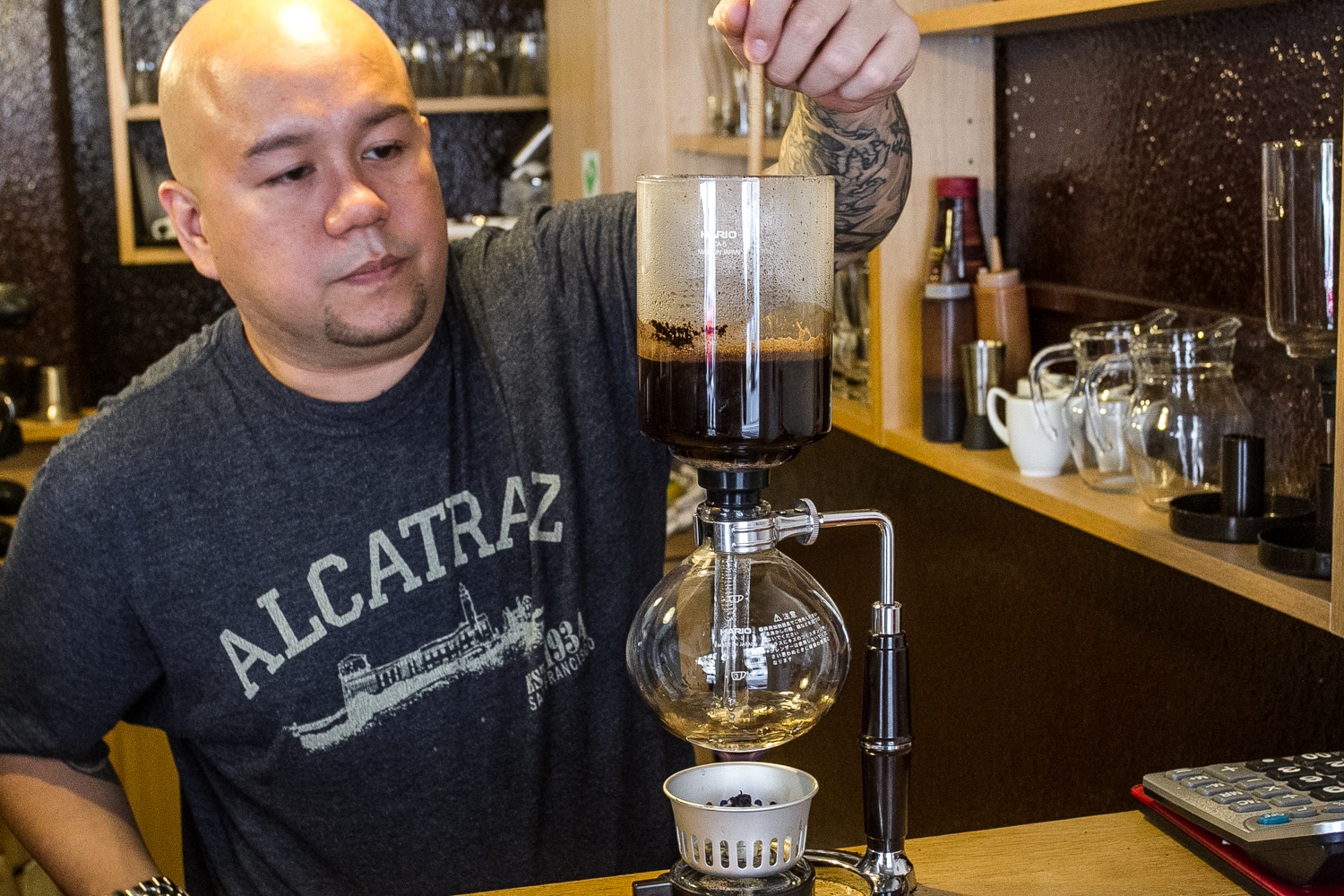It may be unbelievable, but it is still worth opening a café in Budapest if the proprietor has something special up their sleeve. This inspired Ryan to quit his boring, unpredictable, and stressful financial job and move to Hungary with his family to open a cozy café.

We find Barako Café along Török Street, close to Margaret Bridge. Inside, we are greeted by a smiling, tattooed man behind the counter who, despite lacking Hungarian-language skills, speaks to his customers and promotes his native Filipino coffee called Kape Barako in English. Coffee production has been in his family for a long time, so he hopes to introduce and endear his own specialty to customers from Budapest

Naturally, we are always intrigued by novelties, so we tasted their black concoctions in several versions: we drank long coffee (450 HUF, espresso 400 HUF) and a special, siphon-made version (1,000 HUF/two portions). The latter beverage is made in the following way: a spaceship-like, spherical bottom part is filled with water, while the upper section has coffee and a filter in it. The whole thing is boiled, and the magic begins! The result is a real spectacle on one hand, and a robust liquid with a taste that slightly resembles roasted cashews.

Specially prepared coffees are rather basic here. What caught our interest the most is the so-called “Ice Drip”, which is made without boiling, just by dripping ice. It is a Japanese invention, but it is called a Dutch coffee officially, because it was “invented” during ongoing trade with the Dutch. We have not tried this specialty yet, since it takes the ice about eight hours to drip enough coffee, but we can write the owner a message on
Facebook
in advance or find a few portions in the café’s refrigerator if we are lucky. We also learned that Barako coffee is special because, unlike Arabica, its flavor does not collapse when it gets cold – in fact, a cold cup is even sweeter, which can be rather refreshing during summer. This coffee is clearly not for everyone, but to each his own.

The coffees are really good, but the person behind the counter also increases our chances of coming over from the Pest side of the city, either for a strong cup of coffee or just a light chat.

Ryan’s future plans include mastering the Hungarian language and opening a new place that can serve not only coffee, but Filipino food, as well (we cannot wait for it). According to him, Filipino cuisine is similar to Hungary’s: they also have goulash soup and gladly eat and make beef stew, naturally based on local recipes.

Further plans include filling Barako with pastries made by Ryan’s wife, since for now we can only buy liquid products in the café.




